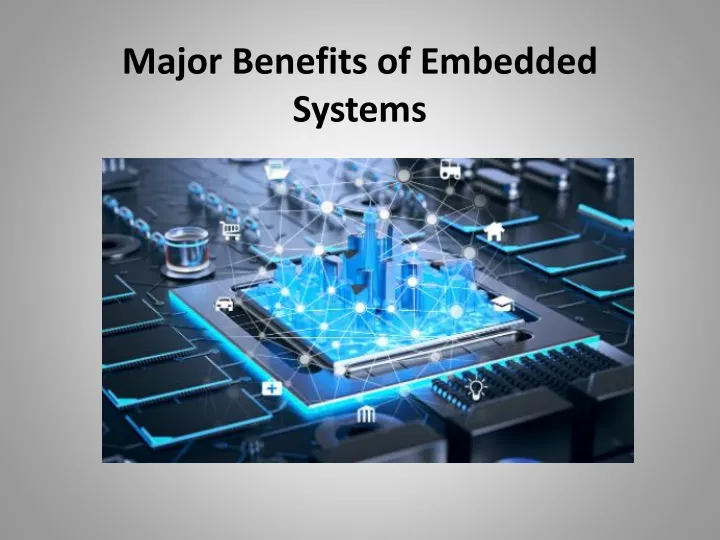The Advantages Of Embedded Computing Systems
When it comes to designing modern embedded computing systems, there are a lot of factors to consider. Whether you’re developing new hardware or software solutions for your business, understanding the advantages of embedded systems can be crucial in planning and executing your next project. In this article, we will explore the different benefits that embedded computing systems can offer and how they can be used in a wide range of applications.
What Is Embedded Computing?
Embedded computing refers to the use of computer devices that are integrated into other systems or products, such as appliances, automobiles, and medical equipment. These devices perform specific functions within the larger system, typically without any user interaction. Examples of embedded systems include smart thermostats that regulate heating and cooling based on room temperature sensors and medical infusion pumps that control dosage rates according to patient needs.
Embedded computing systems offer several advantages over traditional personal computer setups. They are often smaller in size and require less power consumption than standard computers because they are designed for a specific purpose. This makes them ideal for use in applications where space is limited or power availability is scarce, such as in remote locations or on battery-powered devices.
Another advantage of embedded computing systems is their reliability. Since these devices have a narrow set of tasks to perform, they can be designed with fewer points of failure than general-purpose computers. Additionally, many embedded systems are built with industrial-grade components that are more durable than consumer-grade parts found in typical desktop computers or laptops. As a result, these devices can often operate continuously without interruption for years at a time. ESI Technologies offers a wide range of customizable solutions designed to address specific business challenges and optimize operational efficiency.
Overview Of Major Embedded Systems Platforms
Embedded systems refer to computer systems that perform specific functions within a larger system. These systems are designed to operate in real time and have limited processing power, storage, and memory capabilities. Some of the major embedded systems platforms available today include Arduino, Raspberry Pi, and Beaglebone Black.
Arduino
Arduino is an open-source platform that allows users to create electronic prototypes easily. It is popular among hobbyists due to its simplicity and affordability. The platform has a wide range of sensors and shields available for use with its microcontrollers.
Raspberry Pi
Raspberry Pi, on the other hand, is a more powerful platform capable of running full-fledged operating systems like Linux. It is widely used in projects that require higher computing power such as media centers or servers. Additionally, it has advanced connectivity options such as Wi-Fi and Bluetooth.
Beaglebone Black
Beaglebone Black is another powerful embedded system platform that boasts extensive input/output support as well as multimedia features like HDMI output. It also has an impressive processing power making it ideal for projects where high performance is crucial.
What Are The Benefits Of Embedded Systems?
Embedded systems are designed to perform specific tasks and functions, which makes them highly efficient and reliable. They are capable of running 24/7 without the need for human intervention, making them ideal for use in critical applications such as medical devices, aerospace, and defense. Embedded computing systems, including VME boards, offer numerous advantages that make them highly desirable in various applications.
- One of the main benefits of embedded systems is their ability to optimize performance by executing code directly on the hardware. This approach reduces overheads, improves efficiency and ensures real-time processing.
- Another advantage of embedded systems is their compact size and low power consumption. They can be designed to consume very little power while still providing high-performance computing capabilities. This makes them ideal for use in portable devices such as smartphones, tablets, and wearables where battery life is critical.
- Their small form factor allows for easy integration into a wide range of products with minimal impact on the overall design.
- Embedded systems offer enhanced security features that protect against unauthorized access or tampering. With increased connectivity between devices through IoT (Internet of Things), security has become a major concern for many businesses worldwide. Embedded systems provide secure communication protocols such as encryption algorithms that prevent data breaches or hacking attempts from external sources thus ensuring privacy protection amongst other advantages they offer in this regard.
Conclusion
In conclusion, embedded computing systems have proven to be a game-changer for many industries. With their small size and low power consumption, they are ideal for use in devices where space and energy are limited. They have revolutionized the way we interact with machines and enabled new functionalities that were previously impossible.
One of the biggest advantages of embedded systems is their ability to collect and analyze data in real-time. This has allowed businesses to make more informed decisions based on accurate information about their operations. Additionally, the reduced cost and improved efficiency associated with these systems have made them accessible to smaller companies that may not have been able to afford them before.
Overall, as technology continues to advance, it is likely that embedded computing systems will become even more prevalent across various sectors. Their versatility means that they can be used in everything from medical devices to home appliances, making them an essential component of modern life.


Post Comment